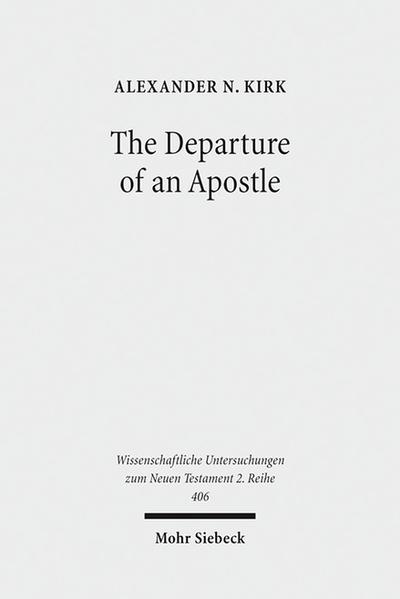KIRK,A., The Departure of an Apostle. Tübingen 2015.
The Departure of an Apostle. Paul’s Death Anticipated and Remembered. 1. Aufl. Tübingen, Mohr Siebeck, 2015.
23 x 16 cm. XV, 318 S. Fadenbindung. (Wissenschaftliche Untersuchungen zum Neuen Testament 2. Reihe, 406). ISBN 9783161543111.
What was Paul’s attitude toward his own death? How did he act and what did he say and write in view of it? What hopes did he hold for himself beyond death? These questions are explored by Alexander N. Kirk through a close reading of four Pauline letters that look ahead to Paul’s death and other relevant texts in the first two generations after Paul’s death (AD 70-160). Thus, this book is a study of Paul’s death in prospect and retrospect. Starting with the latter, Alexander N. Kirk examines portraits of the departed Paul in Acts, 1 Clement, the letters of Ignatius, Polycarp’s letter To the Philippians, and the Martyrdom of Paul. Viewed as a part of Paul’s early effective history, these early portraits of Paul offer substantial resources for the interpretation of his letters. The second half of the thesis examines portraits of the departing Paul in 1 and 2 Corinthians, Philippians, and 2 Timothy, arguing that Paul’s death did not primarily present an existential challenge, but a pastoral one. Although touching upon several areas of recent scholarly interest, Alexander N. Kirk sets forth a new research question and fresh interpretations of early Christian and Pauline texts.
Bestellnummer: 3059VB
Gebundener Ladenpreis: EUR 114,--

